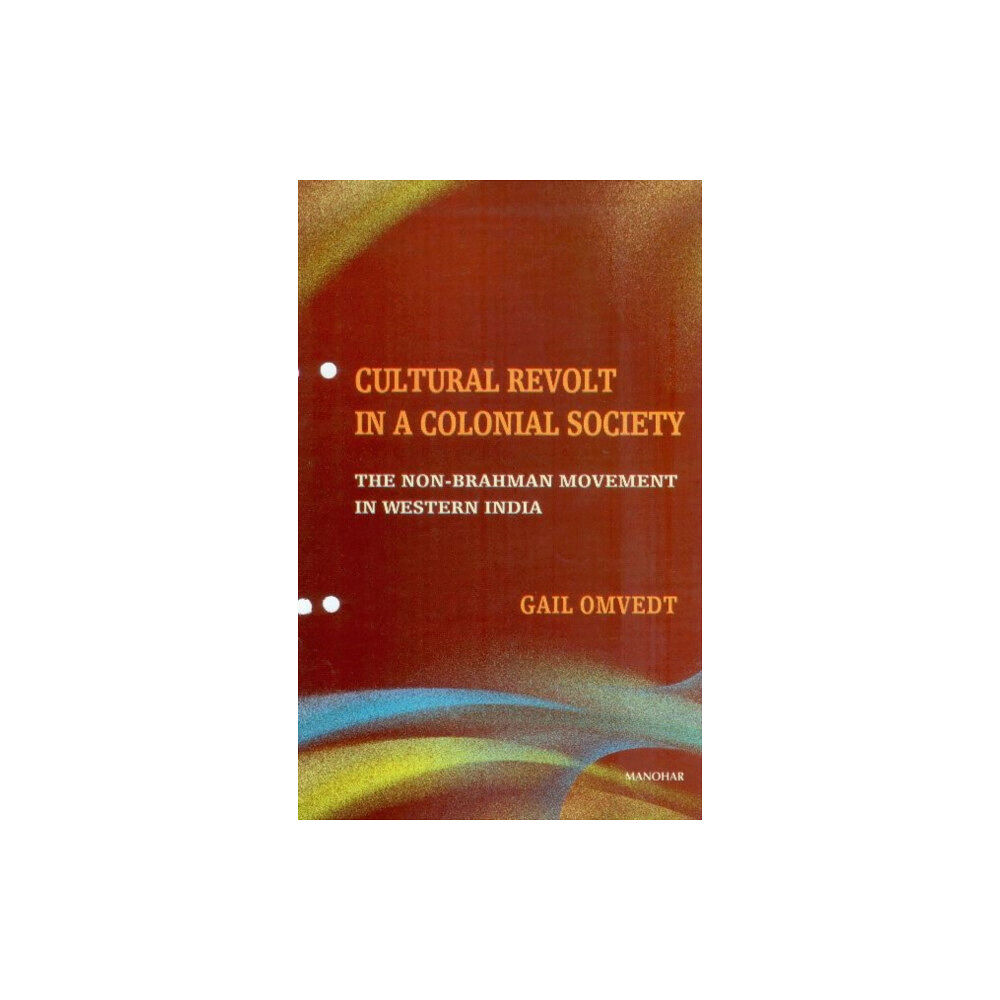Cultural Revolt in a Colonial Society (inbunden, eng)
The colonial period saw important social movements in India. Among the strongest of these was non-Brahman movement in Maharashtra. Its found...
659 kr
Bara 2 kvar
Skickas inom 4 - 5 vardagar
- Fri frakt
The colonial period saw important social movements in India. Among the strongest of these was non-Brahman movement in Maharashtra. Its founder was a remarkable intellectual and social activist from the gardener (Mali) caste, Jotirao Phule (1827-90). His writings laid the foundations of the movement, and the Satyashodhak Samaj (‘Truthseekers Society’) which he founded in 1873, became its primary radical organization, lasting until the 1930s.
Shahu Maharaj, the Maratha maharaja of Kolhapur, who turned against Brahmans because they considered him a shudra, and became radicalized from this, was a major patron. The heyday of the movement took place between 1910 and 1930, when the Satyashodhak Samaj carried the message of anti-caste anti-Brahmanism throughout Maharashtra; one of its offshoots was a strong peasant movement.
In the 1920s a political party emerged, as did Dr. B.R. Ambedkar’s Dalit movement, which drew sustenance also from support of the non-Brahmans and patrons such as Shahu Maharaj. Young radicals such as Keshavrao Jedhe and Dinkarrao Javalkar challenged Brahman cultural dominance in Pune and intervened in the Brahman-dominated Communist movement in Mumbai By the 1930s, however, the movement died away as the majority of its activists joined Congress.
Shahu Maharaj, the Maratha maharaja of Kolhapur, who turned against Brahmans because they considered him a shudra, and became radicalized from this, was a major patron. The heyday of the movement took place between 1910 and 1930, when the Satyashodhak Samaj carried the message of anti-caste anti-Brahmanism throughout Maharashtra; one of its offshoots was a strong peasant movement.
In the 1920s a political party emerged, as did Dr. B.R. Ambedkar’s Dalit movement, which drew sustenance also from support of the non-Brahmans and patrons such as Shahu Maharaj. Young radicals such as Keshavrao Jedhe and Dinkarrao Javalkar challenged Brahman cultural dominance in Pune and intervened in the Brahman-dominated Communist movement in Mumbai By the 1930s, however, the movement died away as the majority of its activists joined Congress.
| Format | Inbunden |
| Omfång | 331 sidor |
| Språk | Engelska |
| Förlag | Manohar Publishers and Distributors |
| Utgivningsdatum | 2024-04-15 |
| ISBN | 9788173049279 |
Böcker
- Format Inbunden
- Antal sidor 331
- Språk Engelska
- Utgivningsdatum 2024-04-15
- ISBN 9788173049279
- Förlag Manohar Publishers and Distributors
Specifikation
Böcker
- Format Inbunden
- Antal sidor 331
- Språk Engelska
- Utgivningsdatum 2024-04-15
- ISBN 9788173049279
- Förlag Manohar Publishers and Distributors


